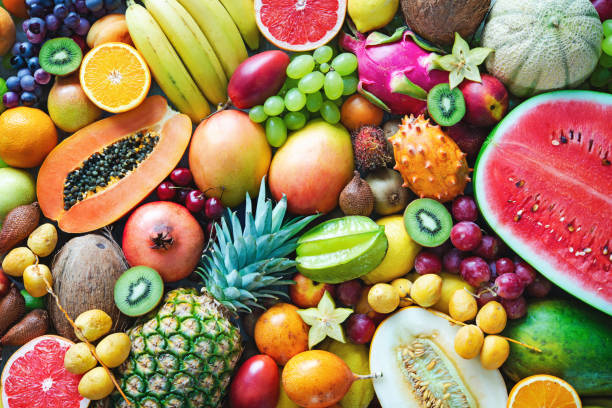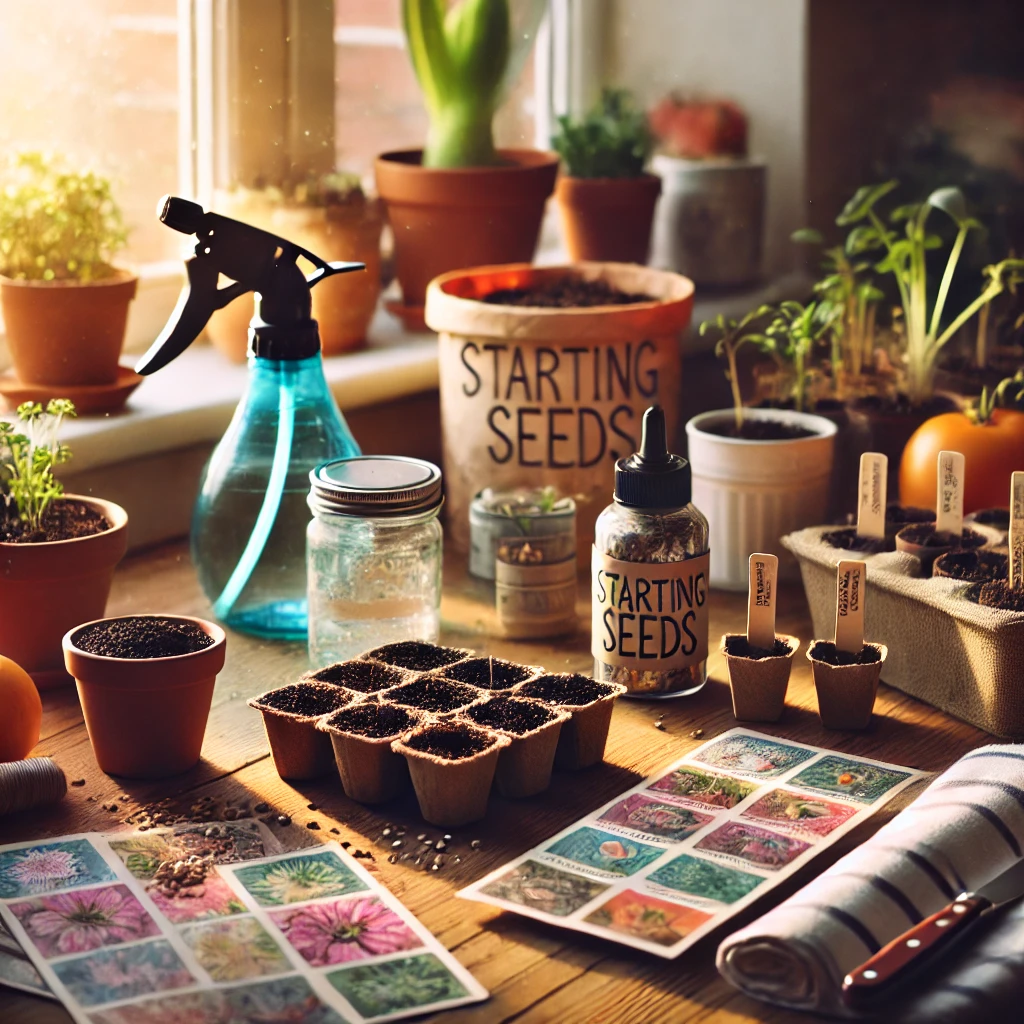Welcome back to our gardening and wellness journey, where today we delve into the intriguing world of nightshades. These botanical marvels, often found flourishing in our gardens, come with a tapestry of tales and truths that spark curiosity and sometimes concern. Nightshades include a variety of plants, some of which are staples in our diets, like tomatoes, potatoes, eggplants, and bell peppers. As a nurse who treasures the connection between gardening, nutrition, and well-being, let’s explore the good, the bad, and the ugly sides of nightshades, shedding light on their effects on gut health and why cooking them might be beneficial.
What Are Nightshades?
Nightshades, or Solanaceae, are a diverse family of plants with more than 2,000 species. They are characterized by their unique chemical compounds, including alkaloids, which can have both beneficial and adverse effects on human health. The common nightshades found in our gardens—tomatoes, potatoes, eggplants, and bell peppers—are celebrated for their nutritional value, offering a rich source of vitamins, minerals, and antioxidants.
The Good
Nightshades, a diverse family of plants that grace our tables with such staples as tomatoes, potatoes, eggplants, and bell peppers, hold a treasure trove of nutritional benefits, earning them a rightful place in the “good” category of our dietary choices. Tomatoes, for instance, shine brightly with their lycopene content, an antioxidant powerhouse linked to reduced risks of heart disease and certain cancers, while also providing vitamin C, potassium, folate, and vitamin K. Potatoes, often unjustly maligned for their carbohydrate content, are in fact rich in vitamin C, potassium, and dietary fiber, essential for overall health, including heart health and blood pressure regulation.
Eggplants boast a wealth of nutrients, including fiber, vitamins B1 and B6, and the potent antioxidant nasunin found in their purple skin, which is known for its brain-protective properties. Bell peppers, in their rainbow of colors, are abundant in vitamin C, supporting immune function and skin health, alongside being a good source of various antioxidants. The inclusion of these nightshades in our diet contributes to a well-rounded intake of essential nutrients, supporting everything from our immune system to our heart and brain health, showcasing the undeniable “good” they bring to our nutritional landscape.
The Bad and The Ugly
While nightshades are celebrated for their myriad health benefits, they also have a “bad” and “ugly” side, particularly for individuals with specific health sensitivities. The primary concern revolves around the alkaloids present in these plants, such as solanine in potatoes and capsaicin in peppers, which can potentially exacerbate inflammation, digestive issues, and autoimmune conditions in susceptible people. These natural compounds, while serving as the plant’s defense mechanism against pests, can cause adverse reactions in some individuals, leading to symptoms such as joint pain, digestive discomfort, and exacerbation of inflammatory bowel diseases.
Moreover, the “ugly” aspect comes into play when considering the impact of improperly stored or overripe nightshades. For instance, potatoes that have turned green and sprouted can have increased levels of solanine, posing a risk of toxicity if consumed in large amounts. This necessitates careful handling and storage of nightshades to minimize the risk of adverse health effects.
Understanding one’s own body’s response to nightshades is crucial, as reactions can vary widely from person to person. For those affected, reducing or eliminating nightshades from the diet may offer relief from symptoms, highlighting the importance of personalized nutrition in managing health and well-being.
Effects on Gut Health
The effects of nightshades on gut health present a nuanced picture, with impacts varying greatly among individuals. For the majority, nightshades are a beneficial addition to the diet, providing fiber, vitamins, and antioxidants that support a healthy digestive system and nourish the gut microbiome. This dietary fiber acts as a prebiotic, feeding beneficial bacteria and promoting gut flora diversity, essential for optimal digestion, nutrient absorption, and immune function.
However, for a subset of individuals with certain sensitivities or underlying health conditions, such as irritable bowel syndrome (IBS) or autoimmune diseases like rheumatoid arthritis, nightshades might pose challenges. Alkaloids found in nightshades, including solanine and capsaicin, can potentially irritate the gut lining in sensitive individuals, leading to inflammation and exacerbating symptoms of digestive discomfort. Moreover, the lectins in nightshades, though present in small amounts, can be difficult for some people to digest fully, further contributing to gastrointestinal issues.
Recognizing and understanding one’s personal response to nightshades is key. For those unaffected, nightshades can be a valuable component of a healthy, balanced diet that supports gut health. However, for individuals who experience adverse reactions, moderation or avoidance may be necessary to maintain gut wellness and overall health.
Why We Should Cook Them
Cooking nightshades serves as an essential step not only in enhancing their flavors but also in improving their digestibility and reducing potential adverse effects on health. The heat from cooking helps break down alkaloids, such as solanine in potatoes and capsaicin in peppers, which in their raw form can cause digestive discomfort for some individuals. This process makes these compounds less potent, thereby minimizing the risk of irritation to the gut lining and reducing inflammatory responses in sensitive individuals. Moreover, cooking transforms the complex carbohydrates and fibers in nightshades, making them easier for the body to digest and absorb. Additionally, cooking increases the bioavailability of certain beneficial nutrients, like lycopene in tomatoes, making them more accessible for the body to utilize. Thus, by cooking nightshades, we not only unlock a richer, more palatable array of flavors but also ensure a healthier, more comfortable eating experience.
Nightshades, with their complex nature, are a testament to the beauty and intricacy of the plant world. They remind us of the importance of diversity in our gardens and diets, offering a spectrum of nutrients essential for our health. While they may pose concerns for some, understanding how to incorporate them wisely—listening to our bodies and making adjustments as needed—can allow us to enjoy their benefits fully.
Join Our Gardening and Wellness Community
Embark on a transformative journey with us at FarmRN.com, where the vibrant worlds of gardening and wellness converge to inspire, educate, and empower. Our community is a sanctuary for those passionate about nurturing health from the ground up, blending the art of gardening with the science of nutrition to cultivate a life of balance and vitality.
Join our community to unlock a treasure trove of resources tailored to enhance your wellness journey. By subscribing, you’ll gain access to insightful articles that unravel the mysteries of nature’s bounty, practical gardening tips that demystify the process of growing your own food, and delicious, healthful recipes that celebrate the harvest of your labor. Whether you’re a seasoned gardener or a curious newcomer, our community offers a supportive space to share experiences, challenges, and successes.
At FarmRN.com, we believe that every seed planted is a step towards a healthier life, and every meal prepared from the garden is a celebration of well-being. Together, let’s embrace the joy of gardening, discover the healing power of food, and thrive in the harmony of a wellness-oriented lifestyle. Join our community now, and let’s grow into our healthiest selves, one plant, and one plate at a time.












